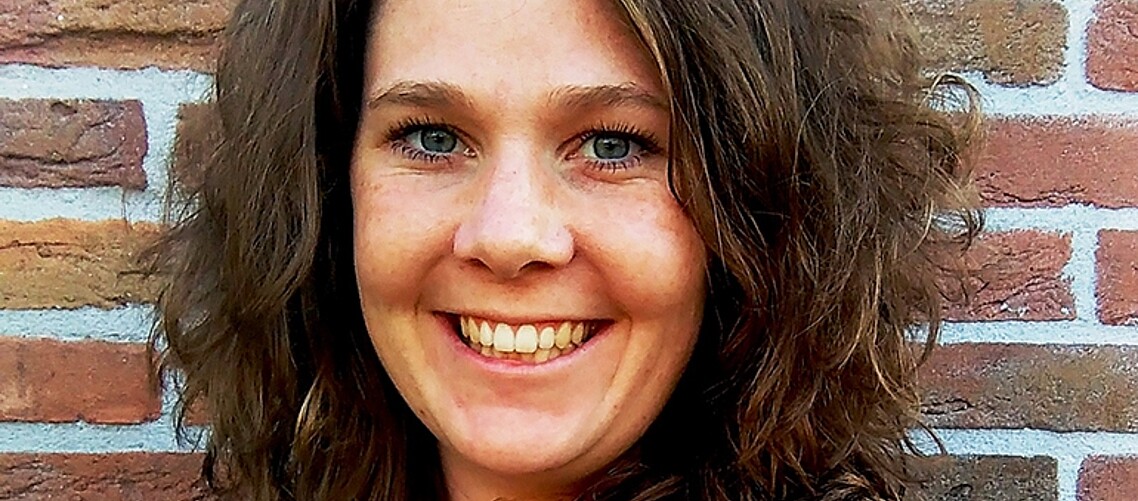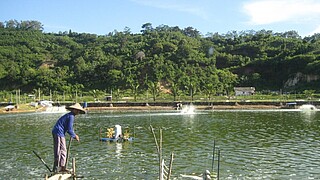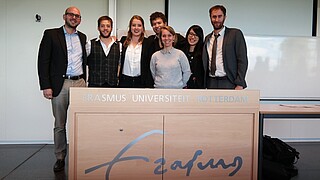Tirza has just graduated cum laude from RSM’s MSc International Management / CEMS programme. She investigated the radical innovations supported by the Max Havelaar Foundation, in particular Fairtrade climate-neutral coffee, in order to understand how cross-sector partnerships influence innovation for sustainability. Her thesis coach Dr Steve Kennedy and co-reader Professor Frans van den Bosch are both very excited about the results and the case, which are described in her master thesis Partnering up for Fairtrade Climate Neutral Coffee. How do cross-sector partnerships influence Sustainability Oriented Innovation?.
Her qualitative exploratory research investigating Fairtrade climate-neutral coffee enabled Tirza Voss to conclude that cross-sector partnerships are indispensable for sustainability-oriented innovation, from idea generation to commercialisation.
Compensating for emissions
Small-scale coffee farmers are threatened by the effects of climate change, so the Fairtrade Carbon Partnership in Coffee – a collaboration initiated by the Max Havelaar Foundation and ICCO, an international inter-church organisation – aims to make the coffee farmers economically stronger. Their business model integrates sustainability benefits into an everyday commodity. The coffee is certified as Fairtrade and the CO2 emissions of the coffee value system – from distribution to the end-user – are compensated for by the coffee roaster through investments in carbon credits generated by the Fairtrade coffee farmer families. The partners encourage coffee consumers, businesses and households to take responsibility for the reduction and compensation of emissions resulting from coffee consumption and disposal.
Carbon ‘insetting’
This system follows a ‘carbon insetting’ approach, in which carbon compensation takes place within the organisation’s sphere of interest, rather than the process of carbon offsetting, which compensates for carbon emissions outside the organisation’s value chain. This closed-loop value system benefits people and planet and maintains a profitable business model.
The Fairtrade climate-neutral coffee is to be the start of a strategic step for the Max Havelaar organisation, referred to as ‘Fairtrade 2.0’.
“We need more instances of such sustainability-oriented innovation to tackle the severe environmental and social challenges of today’s world,” said Tirza Voss.
Partnerships indispensable
“Cross-sector collaboration is crucial for innovation” she concludes. “We therefore need more research to understand how sustainability-oriented innovations processes work and how and when partnerships influence the process in order to be able to reproduce them and to leverage the collaboration potential”.
Fairtrade climate-neutral coffee is not only a new type of coffee to come to market; it also tells a story and creates wider awareness of how the world’s challenges can be tackled through innovation. “Fairtrade climate-neutral coffee has the potential to highlight the responsibilities and impact of all actors and sectors in the coffee value system,” she commented, and went on to explain how sustainability-oriented innovations can create a positive impact. Her research shows that with strong transformative partnerships between actors with an intrinsic sustainability motivation, such innovations can be successful. “And that’s exactly what a Fairtrade climate-neutral cup of coffee does. It brings multiple sustainability benefits such as a fair income for coffee-farming families, protection of ancient coffee forests, and improved health benefits for coffee farmers.”
Tirza’s research throws an interesting light on sustainability-oriented innovation with its NGO perspective. It suggests that NGOs can initiate innovations in which businesses are indispensable partners for commercialisation. Her research could also function as blueprint for other organisations to create innovations for sustainability, suggesting partner sectors, timing and mechanisms for partnerships. More specifically, organisations can use the findings of Tirza’s research to guide the implementation and use of ‘carbon insetting’.
Next steps
Tirza Voss’s international experiences began with travelling the world after high school; she has since travelled and worked in many Asian countries as well as Peru and Brazil, and participated in study exchanges in India and China. Her experiences showed her how people are affected by the challenges of poverty, climate change and inequality. Tirza’s small steps are making a difference; she is board member of a children’s care centre in Cambodia which she founded together with two Australian partners. In addition, she initiated a charity in the Netherlands to provide support and finance for the centre in the long term. She believes her extra-curricular activities and actions in social enterprises and NGOs make small but important differences in people’s lives. She plans to extend her impact by pursuing a career in multinational enterprises, encouraging and supporting larger organisations in their moves towards more sustainable practices, thereby creating a greater worldwide impact. Her first step will be an internship in the sustainability team for Accenture in Germany starting in summer 2015.



